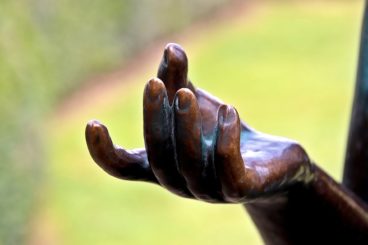
In a recent conversation among leaders of the church, a pastor offered an observation that has stayed with me. The topic of our conversation was about preaching resurrection hope amid a pandemic. This brother shared, in so many words, “I’m not seeing the COVID-19 crisis changing folks in my congregation at all. It’s just amplifying the tendencies they already have.” Other pastors in the Zoom-room immediately resonated. The pastor went on to elaborate, “There’s a difference between being resilient and being stubborn. The problem-solvers in our congregation are up and about trying to fix everything, while the naturally laissez faire simply get more disengaged.”
His insight was as profound as it was simple. There is an important distinction to be made between resilience and obstinance. To be resilient is to be malleable, a posture we Christians ostensibly know to be inherent to faith. Resilient people bend but do not break. They are willing to change in order to remain faithful. Obstinate people resist change out of fear. They hang on to what is familiar. Thus stubbornness—whether expressed actively or passively—is antithetical to faith.
To be resilient is to be malleable, a posture we Christians ostensibly know to be inherent to faith.
As I get up each morning to walk my dog Ollie, face mask in place, I am learning to ask myself, “Am I being changed? Am I learning how to be more present to my wife and kids? What are they learning about faith through my words, my actions, my inactions? How am I practicing love-of-neighbor despite the limitations of sheltering-in-place? Am I simply waiting things out, quietly hoping for the day that things return back to something close to “normal,” or am I intentionally exercising a more gospel-centered imagination? What does it mean for me personally, and the church corporately, to embody now what the world desperately needed to see, long before COVID-19 arrived mercilessly onto the scene?
It is in this extraordinary moment where we find ourselves that the apostle Paul’s admonition carries particular poignancy: “My beloved, just as you have always obeyed me, not only in my presence, but much more now in my absence, work out your own salvation with fear and trembling (Philippians 2:12).” It is helpful to remember that the Philippian letter was written to a people under the oppressive weight of a morally bereft empire. Therefore, to “work out our salvation” is not merely about improving our “quiet times” or working on taking the edge off our flawed personalities. It is about being transformed, entering more robustly into our true identity as the redeemed people of God—in all ways, big and small—so that when we at last emerge from our homes, the church might begin to demonstrate that another world is possible.
 Craig Wong is the director of Ekklesiae, a bridge-building ministry that sets the table for diverse leaders—across traditions, cultures, and generations—to theologically reflect on the times, and discern the implications for the Church’s life and mission. He can be reached at craig@ekklesiae.org.
Craig Wong is the director of Ekklesiae, a bridge-building ministry that sets the table for diverse leaders—across traditions, cultures, and generations—to theologically reflect on the times, and discern the implications for the Church’s life and mission. He can be reached at craig@ekklesiae.org.



One Response
Thank you.